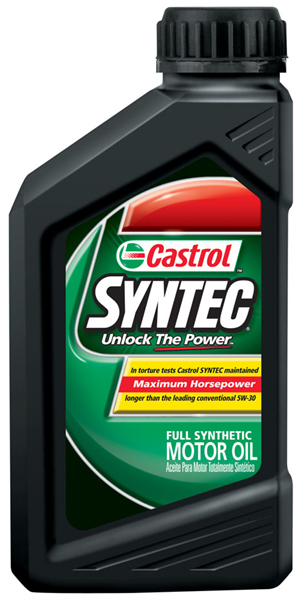Synthetic Oil vs Regular Oil
Synthetic Oil vs Regular Oil
There's always a battle between synthetic oil vs regular oil, or conventional oil. Is synthetic oil really worth the extra price? In most cases the answer is no. The reason why is because of all the advancements in general being made in the automotive industry. These advancements often go unnoticed, but they are very significant. Take gasoline for example. It wasn't too long ago that gasoline has a wide variety of different additives, like lead, that not only caused pollution, but also could gum up and damage an engine. Modern gasoline is much cleaner. Not only that, but many modern gasolines now even have additives that break up old deposits on the fuel injectors and inside the engine to give better fuel performance and a cleaner engine.
Oil, in the same way, has made many advancements in the last 2 decades or so. In the past, oils haven't always been able to stand up to extreme weather conditions and tough usage. But because of better formulation technologies and viscosity enhancers, today's oils meet a higher standard and protect an engine much better than the oils of a few decades ago. Not only that, but machining technology has advanced greatly in the past 2 decades as well, meaning that the surfaces where friction happens are much more precise and internally stable. So the oil inside a modern engine has less of a job to do than oil inside most older engines. When you combine better oil with better precision in machining technology inside the engine, the oil is able to do a much better job in protecting from friction and damage. So in the question of synthetic oil vs regular oil, in my opinion, regular is as good as you'll ever need.

A Few Exceptions
I personally like to save money wherever it's convenient. I don't mind going for oil changes every 3000 miles because there's a shop just down the road that does it cheaply and quickly. Some people however, don't mind spending an extra $30 or so for synthetic because it lasts longer between oil changes, and they value their time over the money saved by using regular. So from that standpoint, synthetic oil might be a great way to go. As far as the cost breakdown goes, synthetic oil is about twice to three times as expensive as the regular oil and lasts about twice as long between oil changes. If you're wanting to get synthetic oil in order to save time, then that's a good way to go. But as far as engine protection goes, in our modern day and age there's less friction to protect against and better oil to do the job. So regular oil is more than sufficient to protect an engine from normal use and weather conditions.
Another exception to getting a standard oil change with regular oil is if you have a warranty that requires the car to be serviced under specific conditions. A lot of times, newer cars with warranties require the owners to get their oil changes at the dealership with the oil that the dealership uses. Sometimes there's a variety of oil to choose from and sometimes there's a pretty standard oil that they use for their new cars. If that's the case then you really won't have much of a choice on what kind of oil you'll be getting and you'll have to go with the more expensive brand to keep from voiding your warranty.
Another exception that used to be true but isn't really true any longer is buying better oil for really cold weather. In the old days, oil would sometimes be ineffective in extremely cold weather because the viscosity would break down and the oil would turn to sludge. But in modern oils that meet all of the requirements for service, oil has viscosity enhancers that keep it operational even during very cold weather. So if you're living in a very cold area and are considering getting synthetic oil because you think it will protect your engine better from the cold, you don't really need to spend the extra money. A mechanic wouldn't put an oil in your car that wasn't rated for the climate of the region where you're getting the oil change done. They would be liable for whatever damage happened.
Synthetic Oil Myths
There are a lot of myths and misinformation surrounding synthetic oils. I've heard before that synthetic oil isn't compatible with regular petroleum based oil, which is false. I've actually gotten oil changes before that were partially synthetic and partially regular. I've also heard people say that they're worried that switching to synthetic oil might cause their seals to get damaged or that the switch might cause buildup and deposits to be left behind. Both of these rumors are also false, which your mechanic can tell you the next time you go in for an oil change. In most respects, synthetic oil acts almost identically with regular oil. Synthetic oil is simply designed to last longer. That's the biggest difference. If you're worried about using a different oil than what you've been using, ask the oil change professional the next time you go in for an oil change. They'll obviously try and sell you on the more expensive brands, but you'll be able to decide in the end what kind of oil to use.





